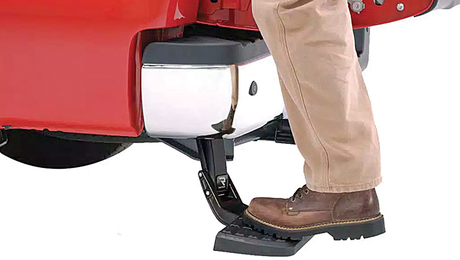Just paid $50 to have a stuck bit removed from my roto hammer (Hitachi H25). The bit had a little ridge at the top of the groove!! The price we pay for buying cheap although this was a good German brand.
I’m not a professional ( at least with a drill) but wonder what others do about lubricating the chuck. The repairman recommended using powdered graphite on the bit. Must admit the bits come out slicker but I was told to never lube the chuck, it will attract dust. Guess the powdered graphite wont but it sure makes your fingers black!!
I have been using the heck out of this drill. I have been reworking a rental and installing a radiant floor in my sun porch. Both involved several holes thru the foundations. Can’t believe how much faster than my old hammer drill this is!!
Just my quarter. Would like others opinion.















Replies
Janation,
I have a milwaukee 1" sds plus totary hammer every once in a while I put a little dab of grease on the bit end. I know that it can attract dust, but my dust seal on the front of the chuck is in pretty good shape. I have had no problems. I like the idea of powdered graphite, it isnt as heavy duty as grease but probably wouldn't attract dust.
Chris
Graphite or silicon work. Moly powder is the best stuff but most people use very little lubrication or nothing. Checking the bits and grinding off any mushrooming or burrs on the bits is a good idea.
Moly huh, how about bullet moly powder. that gets your fingers even more permanently black!
Another question. How do you keep holes from drifting when drilling brick and the hole laps into the mortar? Are pilot hole a good idea? I tried a 1/4" pilot for a 1-1/8 hole (3/4" pipe) and it didn't seem to help.
Carbide hole saw? Diamond hole saw?? Starrett makes both.
Pilot holes, to a point, help. What I usually do is angle the bit into the harder material and let it chew its way into it for a time. Once the harder material is out of the way and the bit has a hole to help guide it I square the bit up and continue the drilling. Sometimes when you need to cut deeply into hard material, say old bricks with flinty inclusions, next to a much softer one, say old lime mortar, I have to maintain some angle all the way through. This leaves a funnel shaped and oblong hole but it is usually fairly accurate where the bit breaks through.
Whenever possible I try to avoid locating holes where two different materials meet. Sometimes, if you spot the potential problem early enough a little rearranging of conduits and feeds can avoid the situation by shifting things a few inches. Then again sometimes not.
I will say that once started hollow core drill bits, starting without a pilot and guide can be a pain sometimes, seem more immune to differentials in hardness that cause other types of bits to wander. I have cut half way through #8 rebar without deflecting the bit and this was in soft and degraded concrete.
I have the 1 1/8" Bosch, and the instructions say to use a little dab of the official Bosch grease that came with it every time you change a bit. That's what I do. The tube is big, it'll probably last longer than I will. There's also an official Bosch rag for wiping the grease off, but I wear that one on my head in the summer, and wipe with ordinary rags. ;-)
-- J.S.
I use the grease too but often regular lube grease or what ever is handy. I wouldn't bother with the graphite because it's a worse mess and because the bigger reason for the grease is to dissapate or reduce heat buiold up that comes from the pressure and friction. That heat will transmit into the tool and add to the internal wear and tear on it. It also adds to the mushrooming someone reported. I've never had that myself..
Excellence is its own reward!